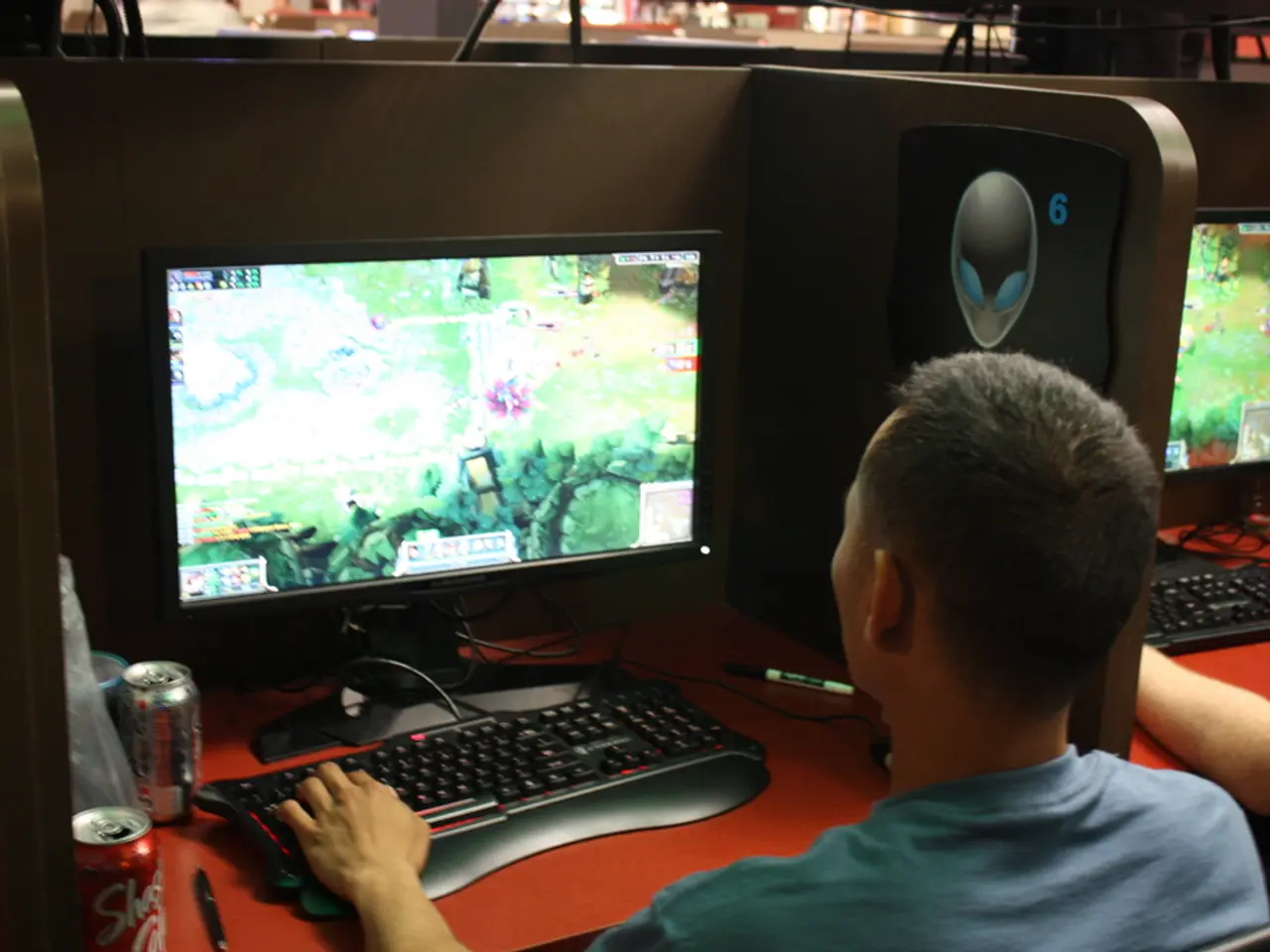Brother's anger stemming from compulsive online gaming addiction requires assistance
In today's digital age, it's not uncommon for teenagers to develop gaming addictions. This article aims to provide strategies for managing gaming addiction and anxiety in a teenager, using the case of a sister helping her brother.
Strategies for Managing Gaming Addiction
Addressing a gaming addiction requires a thoughtful and compassionate approach. Instead of being confrontational, the sister can approach the situation with curiosity. By setting clear limits, encouraging physical activity, and exploring alternative hobbies, the sister can help her brother break free from the grip of gaming addiction.
- Set Clear Limits: Establishing and enforcing strict limits on gaming time is crucial. Parental control software can be used to monitor and control access to games, ensuring a healthy balance between gaming and other activities.
- Encourage Physical Activity and Breaks: Regular breaks from gaming can help reduce eye strain and improve overall health. Encouraging activities like walking, sports, or simply focusing on something distant every 20 minutes can break the gaming cycle.
- Alternative Hobbies: Helping the teenager explore other hobbies or interests can provide a replacement for gaming as a source of enjoyment. Holistic therapies like art, music, or meditation can offer alternative creative outlets.
- Family Support: Both parents should be on the same page when addressing the issue. United support helps prevent division and enables consistent enforcement of limits.
- Cognitive Behavioral Therapy (CBT): CBT is effective in treating gaming addiction by helping individuals identify and challenge harmful thoughts and behaviors. It can be particularly helpful in managing triggers and emotions associated with gaming.
Strategies for Managing Anxiety
- Mindfulness Techniques: Teaching mindfulness exercises such as deep breathing, meditation, or yoga can help manage anxiety.
- Contact a Professional: If the teenager's anxiety is severe or persistent, consulting a mental health professional is recommended. They can provide personalized support and strategies tailored to the teenager's needs.
- Support Groups: Encouraging participation in support groups, either in person or online, can provide a sense of community and understanding.
- Relapse Prevention Plans: Developing a plan with the teenager to manage triggers and avoid relapse is essential. This can include contacting support, engaging in offline activities, and maintaining a healthy routine.
- Daily Routine: Encouraging a balanced daily routine that includes time for relaxation, socializing, and academic or work activities can reduce reliance on gaming as a coping mechanism.
By implementing these strategies, the sister can help her brother manage gaming addiction while also addressing his anxiety. It's important to remember that change takes time, so patience is key in addressing the brother's gaming addiction. The goal is not just to remove the gaming habit, but to replace it with other activities. Involving the brother in the decision-making process is more effective than imposing rules.
When the brother is not using his phone, especially for gaming, he behaves normally and even cracks jokes. This shows that with the right support, the brother has the potential to overcome his addiction and lead a healthier, more balanced life. If needed, seeking support from professionals is always recommended.
- Incorporating mindfulness techniques such as deep breathing, meditation, or yoga can help manage both gaming addiction and anxiety.
- To address gaming addiction and anxiety in a teenager, a combination of strategies including setting clear limits, encouraging physical activity, exploring alternative hobbies, and family support is beneficial.
- Utilizing cognitive behavioral therapy (CBT) can be effective in treating gaming addiction by helping individuals identify and challenge harmful thoughts and behaviors, which may also aid in managing anxiety.
- By involving the teenager in decision-making processes and offering holistic therapies like art, music, or meditation, alternative creative outlets can replace gaming as a source of enjoyment and distraction.
- When addressing gaming addiction, it's essential to understand that change takes time, and patience is key. The goal is to support the teenager in developing a healthier, more balanced lifestyle that prioritizes mental health and wellness, alongside technology.




